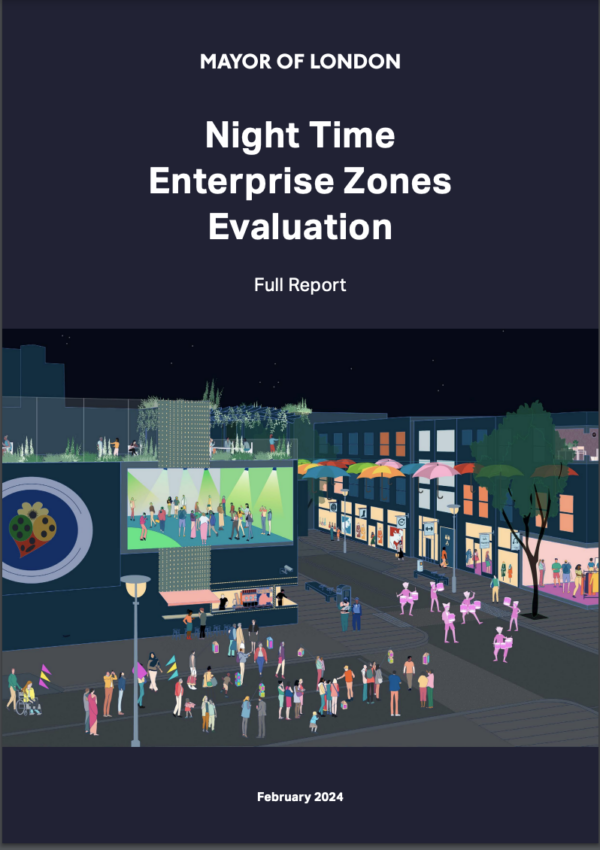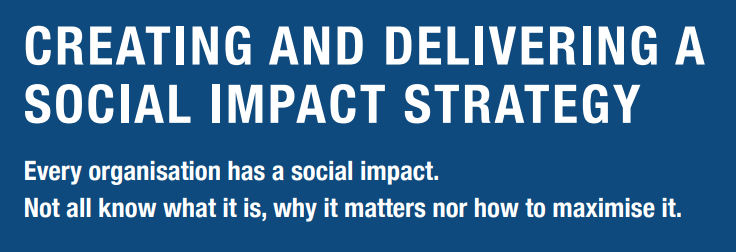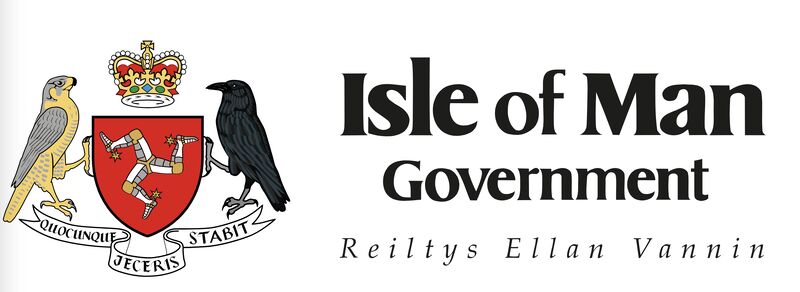
Why dramatic changes in data and technology need radical changes from business leaders
This week I was privileged to to an after dinner speech to a group of senior property professionals. This is what I told them!
“Good evening and thank you for your kind introduction. It is a pleasure to be amongst so many surveyors having started my commercial life twenty years ago under Michael Nicholson’s, tutorage at FOCUS – the first UK data entrepreneur!
In that time, by chance rather than judgment, I have been involved in the world of data. I can sense by that very word data that many of you will think that there cannot be a more boring industry to have joined other than litter picking or watching paint dry. That was my first thought too but nevertheless I thought I would give it a go and here I am today talking about it to the great and the good of the UK property sector.
So, in the next 10 minutes or so I want to talk to you about the challenges and opportunities that data now presents to the property sector and indeed the world. Last year the Economist front page was all about data being the new oil. Even last week at Davos the Prime Minister was talking about artificial intelligence and what it means to the UK – the opportunities but also the threats.
Forecasting impact is not an easy thing to do when you have no idea where the revolution might go. It is reported that 90% of the world’s data was created in the last two years alone. For example, in one minute the following activity takes place Amazon makes $260,000 of sales, 4.14 million YouTube videos are watched, 3.5million text messages are sent, 3.6million Google searches, 47,000 Instagram posts, 46,000 Uber journeys. The vast numbers which seem unbelievable go on. Only recently, Alibaba on China Singles Day saw 357,000 transactions a SECOND!!

How many envisaged how smartphones would change our world and if you are sitting there thinking it hasn’t changed yours then it has changed your family’s, your staff and your customers. It was only 10 years ago that the first iPhone was launched, the first of the smartphones. In 2007 they sold 1.4 million and in 2016 they sold just under 212 million.

It was only 25 years ago that librarians existed in surveying firms to read magazines and newspapers and cut out articles, paste them into a book and then the book would be passed around the office and for those with a process mentality you had to sign the book to say you had read it. In those days data resided in the heads of the people who would deploy it as and when they wished. This has now changed as data is now everywhere and accessible to all, so it has fundamentally changed the role of humans in all aspects of life and especially business. A good example of this is Purple Bricks, founded in 2014, they sell homes for a fixed fee of £849. On listing (December 2015) its share price was 95p and last week it reached 449p and traditional estate agent Countrywide has fallen to 102p from a peak of 686p in 2014.

So how does one deal with these changes that increase in number and velocity by the day?
When one considers decision-making there are five key stages within the structure that are taught within universities;
- Data which is easy to share and is raw facts
- Information which again is easy to share and is the contents of a database assembled from raw facts
- Evidence, often shared but not easily which is the result of analysis of many datasets or scenarios
- Knowledge, difficult to share and is personal knowledge about people, places and issues
- And Wisdom which is impossible to share and is as a result of policies developed and accepted by stakeholders so evolved acceptance.
So, with all this change it is critical for all of us and our companies and Boards to understand where we stand on these levels of decision-making and whether those within our firms GET IT and WANT IT in terms of adjusting to this new world of technology and data driven outcomes. It fundamentally begs the question of what is the role of an agent? Purple Bricks is making this challenge and my answer would be that all of us must understand the WHY (our reason for being) and not just the WHAT and the HOW as this is increasingly irrelevant. The good news is that people still buy from people but now and in the future it will be fewer people and those who have the Knowledge and Wisdom which is clearly articulated in their proposition.

In the last 12 months the buzz words have been machine learning and artificial intelligence. Forgive me if you are already expert in what they mean but it is important to understand what they mean, how long they have been in existence and what they could mean going forward.

Machine learning is the use of mathematical procedures (algorithms) to analyse data. The term was first coined by Arthur Samuel of IBM in 1959 and is the dominant mode of Artificial Intelligence today. Examples include recommendations on Netflix, computer translation such as Google Translate and self-driving vehicles. It is essentially about pattern recognition of data. For example, if you type into Google the term doctor and look at images it will primarily show you white males in white coats which we know is not representative of the profession. Therefore a big concern is the ability to manipulate machines by controlling the data they analyse, and this is something of great concern to me especially when you look at the rise of fake news and interference in democracies through distribution of false data. A machine does not have a conscience and cannot reason – not yet anyway!

Artificial intelligence has a few definitions but the most straightforward one for me is the replication of human analytical or decision-making capabilities. That last phrase is the big one and has set everyone’s alarm bells ringing – a world controlled by machines a bit like HG Wells book War of the Worlds published in 1897. The term was first used by the American scientist John McCarthy in 1956. Artificial intelligence takes the machine learning to predictive models which can be applied to repetitive tasks. Examples include credit scores, Facebook photo facial recognition, playing chess against a computer and being able to spot signs of cancer. In a number of high profile cases machines have beaten humans be it on a game show, a chess grand master or a leading US cancer consultant. An example of where it can go horribly wrong was last year when YouTube was placing adverts alongside terrorist and other unsavoury material and the advertisers went mad and withdrew their spend. YouTube’s machine learning algorithms was determining where to place ads!
Remember earlier I mentioned that 90% of the world’s data has been generated in the last two years and therefore we will see massive acceleration of machine learning and artificial intelligence in action. It is well on the way to removing many tasks that we do and therefore I come back to the area of Knowledge and Wisdom being where we fit into the new work world. There have been massive changes within the fund management business and the growth of artificial intelligence. For example, the quantative hedge fund industry is about to pas $1trillion of assets under management. All the big players are wading in. For example, Morgan Stanley’s fee for robo-investment is 0.35% versus a human led one of c.2%. Investors are switching in their droves.
It is only now that the real window of opportunity has opened for all of this and this is because we now have the computing power, we now have the data and all that is left is to develop the outputs and invent machine solutions to human problems.
So what will this mean for the future of office space if thousands of investment managers and analysts are replaced by server rooms? One for the property community to ponder.
What we do in the future is likely to change and unless we evolve as an industry and as individuals we will cease to add value in the future? I will now talk about how these changes are affecting who and how we recruit as well as how we should manage in the future.
You will have all seen that that Google, Facebook, Twitter and other digital companies were founded by those younger than most of us in this room. The exception to this is probably Elon Musk of Tesla et al who is 46 and Jeff Bezos of Amazon who is 54. Traditionally in business we looked to the likes of Jack Welch, Dave Hewlett of HP, Robert Eisner of Disney and Richard Branson for expertise and innovation. This has now changed. In many cases they may be one’s peer group or indeed the generation ahead of you. These people are no longer the sole source of knowledge and wisdom. The young of today, the millennials (Gen Y), the Gen Zs and the latest group born since 2013 Gen Alpha have grown up in this world of technology and they embrace it and manage it. A key thing that we must all realise is that we cannot CONTROL what is happening around us, but we can MANAGE it. Again my challenge to all of you and one I ask myself regularly is HOW AM I DOING THIS?
HOW AM I DOING THIS?
I have been very fortunate to be involved in businesses where there has been rapid growth of people and the people have generally been Generation Y. I grew up in a world of doing what you were told at home at school and of course in the military where orders were orders! If I was still managing as I had learnt to in my teens and twenties I would have failed in all the businesses I have worked in. I have had to change massively and by that, I mean seeking to understand those I work with before being understood.
SEEK TO UNDERSTAND BEFORE BEING UNDERSTOOD
(The 7 Habits of Highly Effective People by Dr. Stephen Covey)
This creates the magic word culture and it is cultures that the workforce of today and tomorrow are drawn to. The innovative and entrepreneurial are not drawn by money but by what they can do, the environment they can do it and the value that is placed upon them as individuals. Wouldn’t it be nice if we could all do what Google does which is give 20% of employee working time to work on anything that they think will make a difference in the world. Many savvy companies are using this new ‘open world’ to get others to work for them for free by establishing hackathons and other events for short periods with big prizes for the best idea or game changer. How many of us here today empower our staff to act in this way and have the confidence to implement the fruits of their labour? I am not for one minute saying it is easy but if you are to remain competitive, recruit and retain the best human capital then I believe you must.
This leads me onto my final point for this evening around people and personality. It is only through a combination of people and technology that your company will be successful. I am always looking for people with passion and purpose as that is my culture – everything else can be taught.
Passion and purpose …
As people we all know that we are different and we know who we like or respect and then there are the rest. This new world we live in requires many different skills and to give you an example of this I will explain the diverse group of people that the Local Data Company employs and then of course there are its clients! In a company of c.40 people there are 12 distinct groups of people who are very different from each other. Take for example an extrovert personality such as a salesman and the introvert personality of a software developer. The creative personality of a graphic designer and the daily grind of analysing data (something which in time I hope will be machine led). All of these people are in one team but are not natural allies so their ability and willingness to perform will be based on how they and the team are led.
I am not advocating detailed personality programming of all your staff as per the Myers Briggs model or any of the other models, although for executive teams and boards I think it is a good way to ensure you get the optimum group for the job. What I am advocating is ensuring that within companies there is a 360 degree understanding of who we are and the people we work with be it internally or externally. All this requires is an open mind and a willingness to look in the mirror rather than put of the window when difficulties arise. Humility is the greatest quality of leadership in my view and this is what Gen Y and the followers demand. In many ways this is why the current political turmoil has grown.

A simple way to look at this is in terms of colours where the Reds, myself included, are demanding and determined, the Yellows sociable and demonstrative, the blues are cautious and precise, and the Greens are caring and patient (The Colour Works). These are just a few of the qualities associated with each. Which colour do you most relate to?
We are of course a mixture of all them but one of the colours will be dominant and one will be what you are least like. The blend of these colours determines, in a basic way, the kind of person you are. Are you a director, a motivator, a coordinator, an observer, a reformer, an inspirer, a supporter or a helper? Are the roles of your people suited to their personality type and how do you alter your communication between types of personality? If you don’t then I can assure you that you have a dysfunctional team and therefore an underperforming company.
In conclusion, I hope that I have conveyed the magnitude of change that our world is undergoing and the need for business leaders to learn and grasp the very best there is in order to create competitive advantage. As humans unless we are able to offer knowledge and wisdom then we have a limited shelf life and much of this change is being driven by younger generations who have grown up as digital natives and our role is to learn how to manage them and this new world best and not think we can control anything.
As humans unless we are able to offer knowledge and wisdom then we have a limited shelf life…

I do believe that the potential for artificial intelligence to change the world is enormous and we will start seeing the impacts in 2018. A good example and one to watch is what it could do for the NHS but it can only do that if we, the consumer/patient, are willing to share our data. This gets us into a whole new world of data privacy but I believe to get out we will all have to put in and perhaps those who refuse will have a different level of service from those who do. Food for thought and a good note to end on!”






Leave a comment: